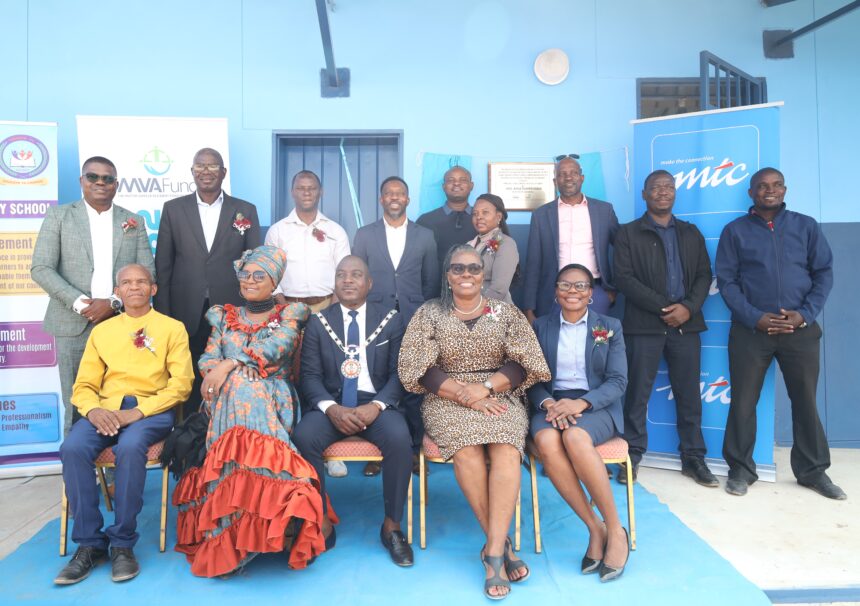TSUMEB – Mobile Telecommunications Limited (MTC) and the Motor-Vehicle Accident Fund of Namibia (MVA) on Wednesday donated eight classrooms, a computer lab and a storeroom worth N$3.4 million to Tsumeb Secondary School.
Education minister Anna Nghipondoka handed over the donation at Tsumeb Secondary School in the Oshikoto region.
She thanked MTC and the MVA Fund for their support, and called on stakeholders in education, the business community, and community members to join the ministry in addressing the infrastructure challenge.
“Allow me to call upon all stakeholders in education, businesses, organisations and community members to join us in addressing the infrastructure challenges and other educational needs,” Nghipondoka said.
She also urged the learners of Tsumeb Primary School and the community of Tsumeb to take pride in the new facilities by safeguarding them against vandalism, and ensuring they are kept in good condition for the benefit of current and future generations.
The MTC Rural Schools’ Project is an initiative aimed at helping the government improve learning environments and standardise education practices across the country. Schools with dilapidated or non-existent structures are renovated and, in most cases, new classroom blocks are added. Since its launch in 2019, the project has built 49 classrooms.
The regions that have benefited from the project are Kunene, Otjozondjupa, Oshana, Hardap, //Kharas, Kavango West, Zambezi, Ohangwena and now Oshikoto.
The collaboration between MTC and the MVA Fund is intended to assist the education ministry in ensuring the education journey for Namibian children is carried out with dignity by creating an acceptable learning environment.
MTC’s Chief Human Capital, Marketing and Corporate Affairs Officer Tim Ekandjo called on other booming financial sectors within the Namibian economy to make their corporate social responsibilities visible and known to the public.
He called on the private and public sectors to collaborate in addressing challenges in the education and housing sectors and to tackle poverty.
“I call upon those who are making large profits in the fishing sector to take even one per cent of the income generated from their large fishing quotas, and plough that back into the Namibian education sector,” he said. -Nampa


